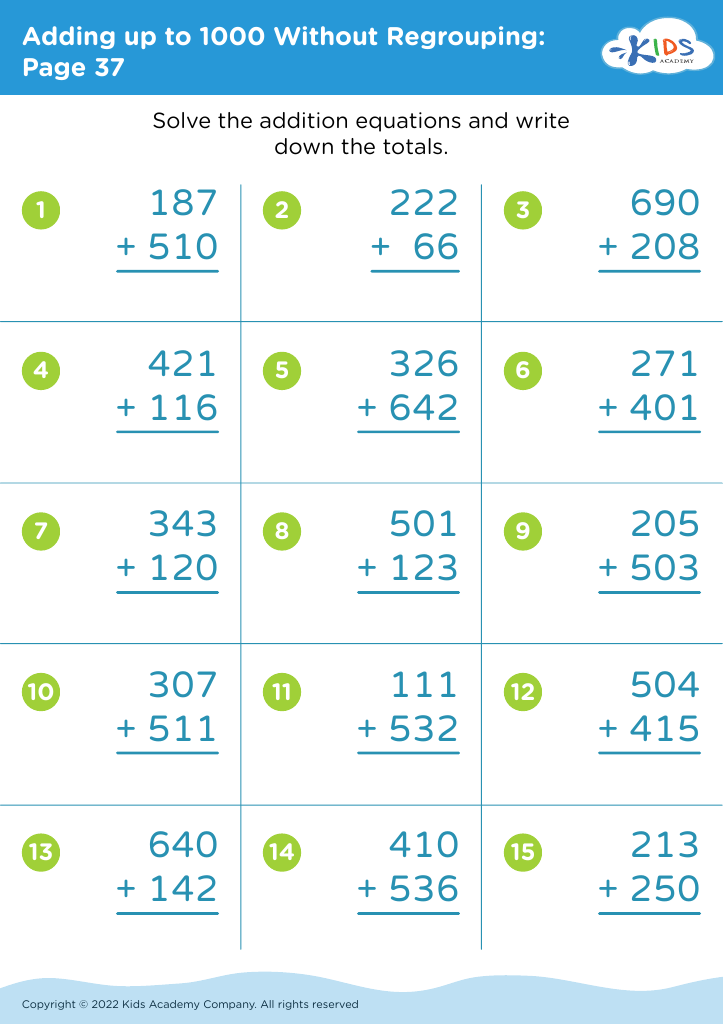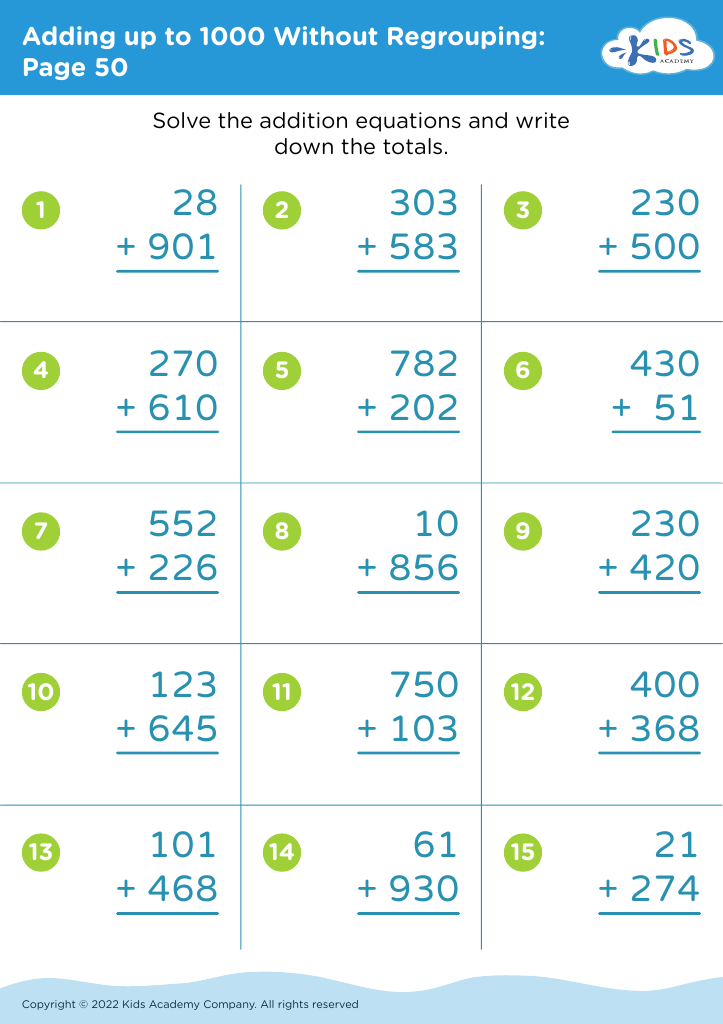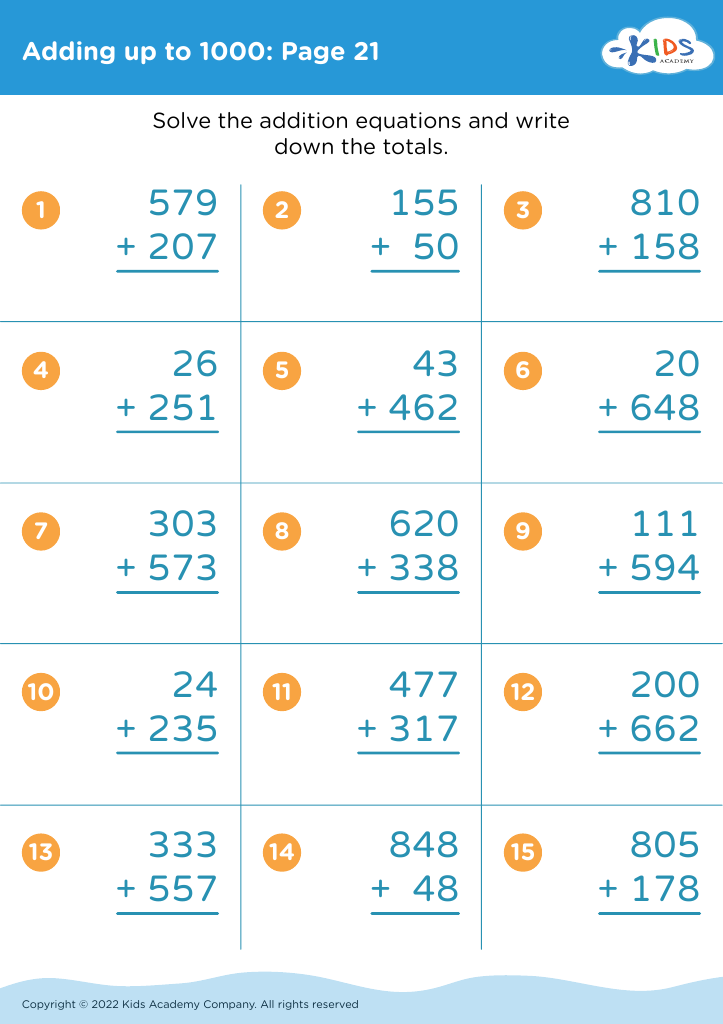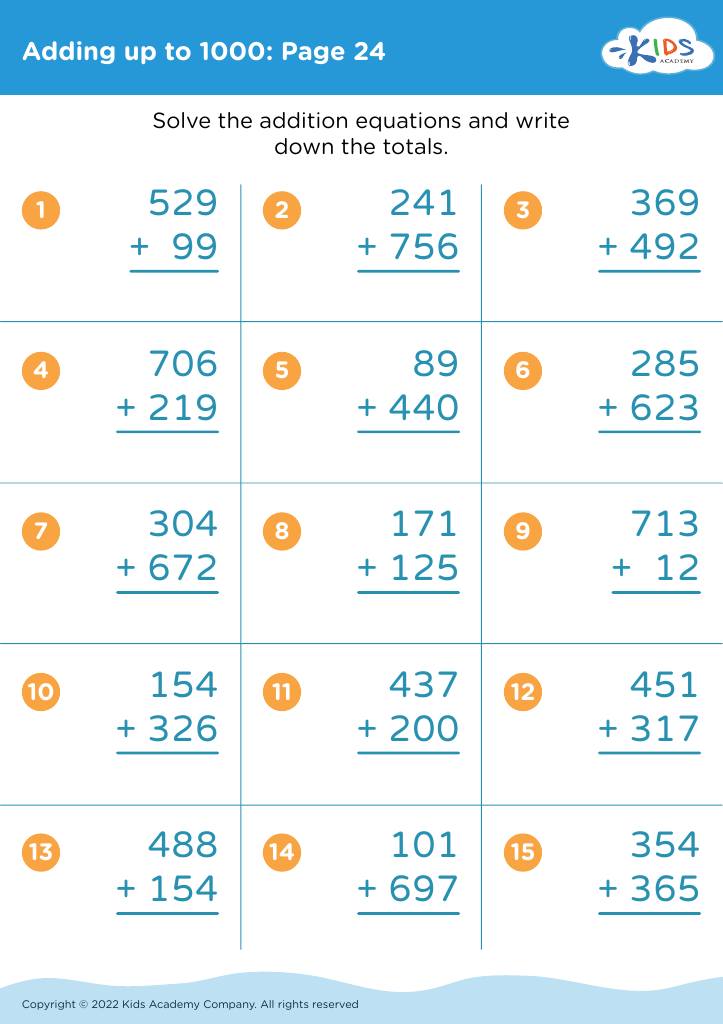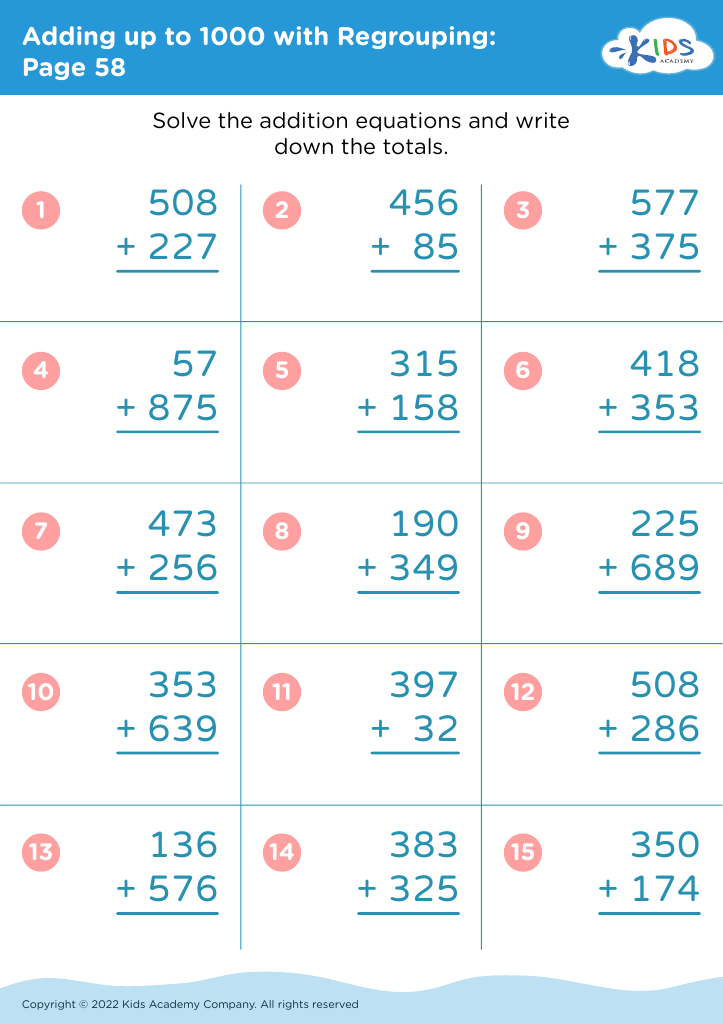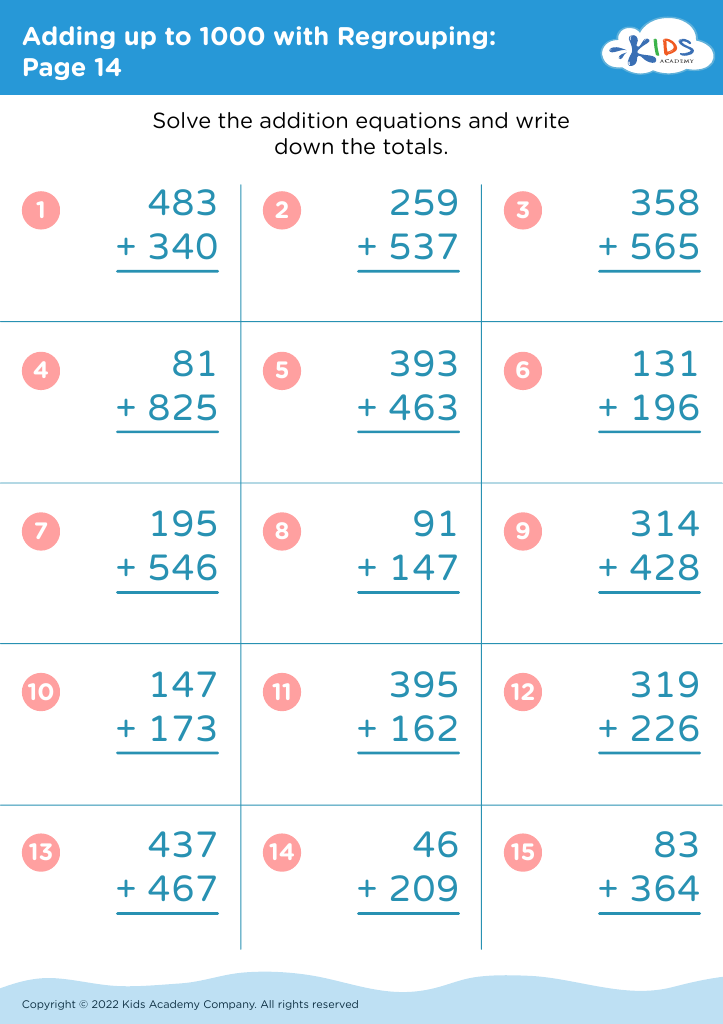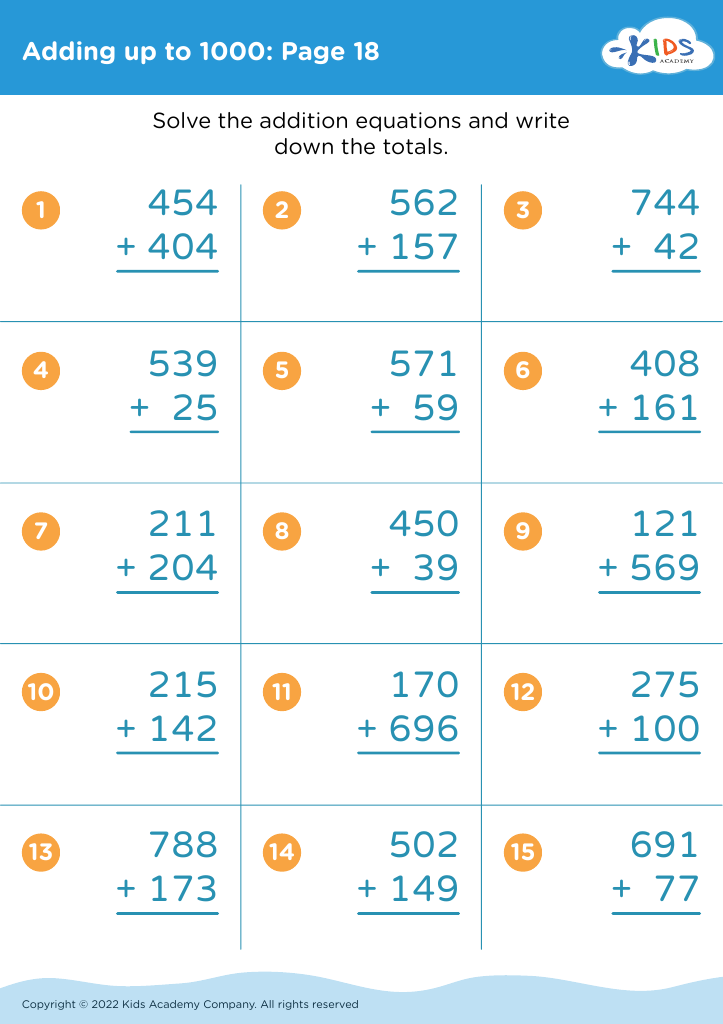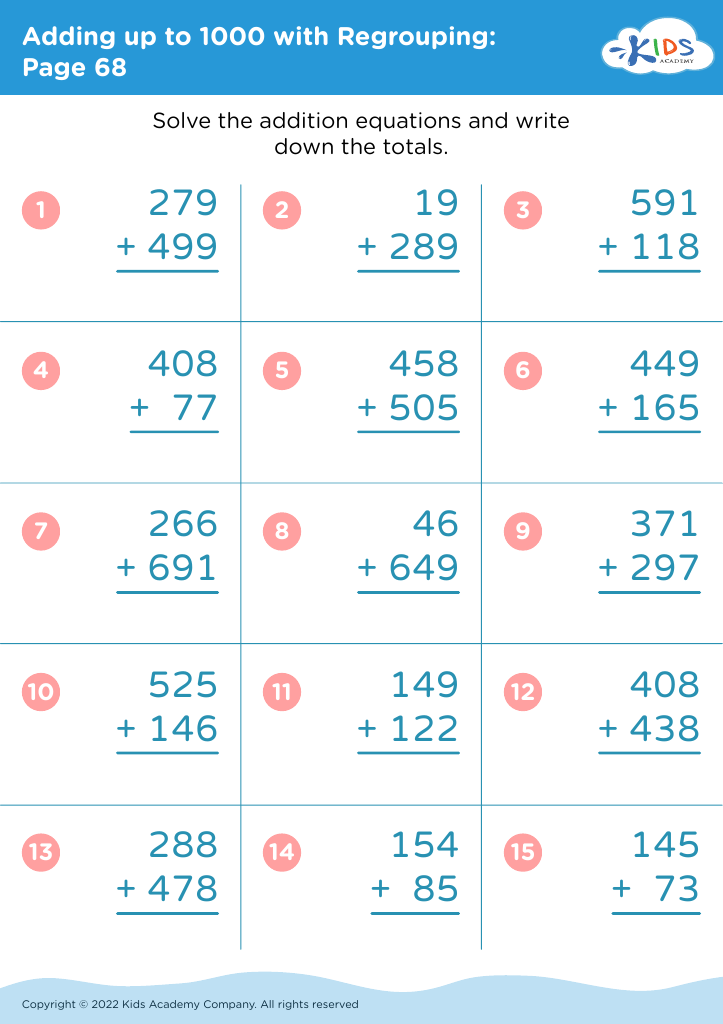Fine Motor Skills Adding up to 1000 Worksheets for 8-Year-Olds
12 filtered results
-
From - To
Fine Motor Skills Adding Up to 1000 Worksheets for 8-Year-Olds offer a fun and engaging way to enhance your child's hand-eye coordination, dexterity, and concentration. These printable worksheets incorporate numerical exercises with creative activities that require cutting, coloring, and tracing. As children practice addition techniques, they'll also strengthen essential fine motor skills crucial for their overall development. With a variety of interactive problems related to adding up to 1000, these worksheets provide purposeful learning that will keep your child entertained while boosting their confidence in math. Explore our collection today and watch your child flourish in both math and fine motor skills!
Fine motor skills are critical for an 8-year-old's overall development and learning. These skills involve the small muscles in the hands and fingers, enabling children to perform tasks that require precision, such as writing, drawing, and manipulating small objects. As children transition into higher academic levels, proficient fine motor skills significantly influence their ability to take notes, complete workbook activities, and engage in creative projects.
For parents and teachers, understanding the importance of fine motor skills means acknowledging how they impact a child’s self-esteem and independence. Children with well-developed fine motor skills can engage confidently in tasks, which fosters a sense of accomplishment and motivation to explore more complex skills. Additionally, strong fine motor abilities are closely linked to cognitive development, as they also enhance problem-solving skills and hand-eye coordination.
Investing time in promoting fine motor development through play, art, and various hands-on activities ensures that children are well-equipped for future learning challenges. By prioritizing these skills, parents and teachers facilitate an environment that supports growth, creativity, and academic success, ultimately leading to happier, more successful children. In a world increasingly reliant on technology, these foundational skills remain essential for both physical and cognitive functioning.
